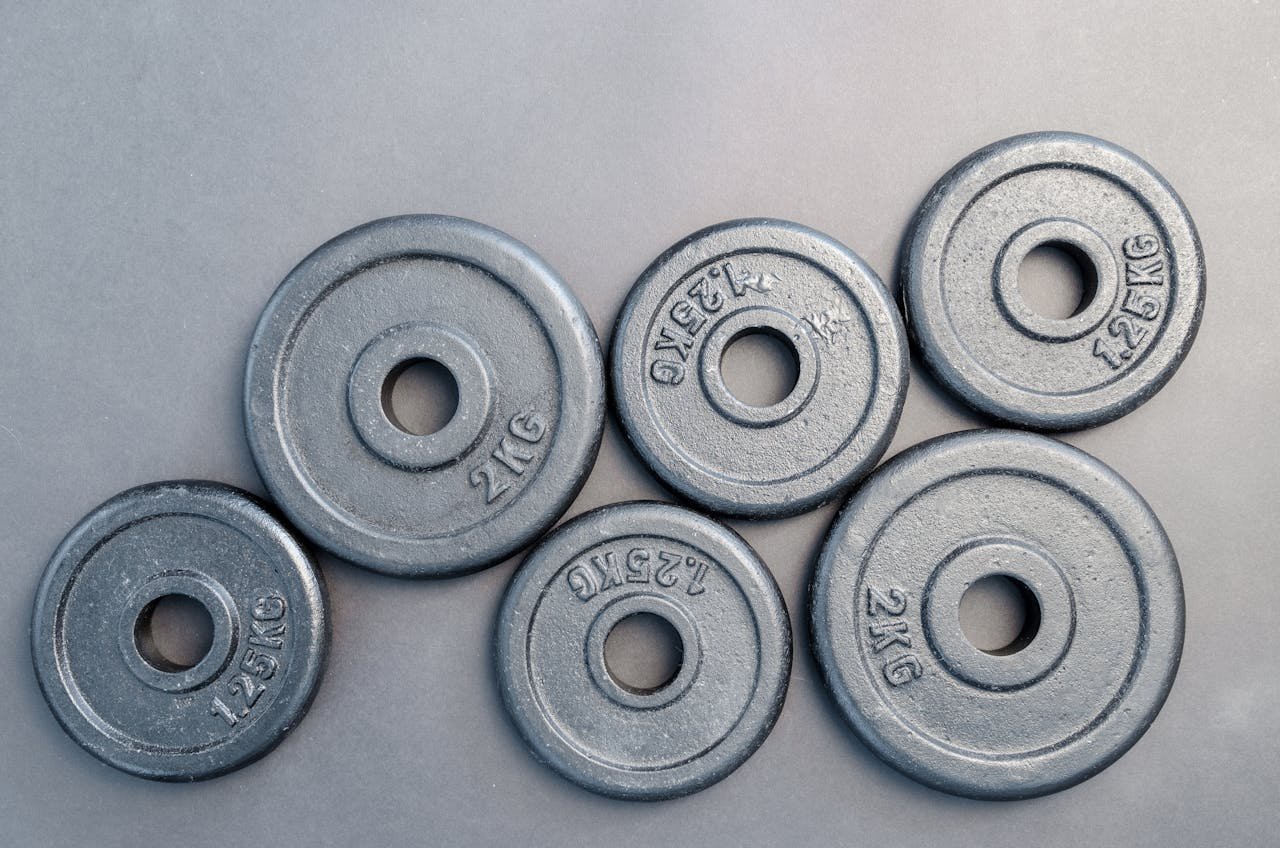
Photo by Lukas.
There’s a stretch of Toronto’s east end with a mess of old junkyards, old factories, a postal processing facility, and then a bunch of big-ass Hollywood studio lots. It’s fun to imagine the level of civic planning it would take to get all those businesses next to each other on purpose. The trick here was just cheap land and close access to trucking corridors.
While it’s common to see big trucks come and go all along this route, pedestrians are still rare. Less rare than they were a decade ago. Less rare than they’ll be a decade from now as the city spills into previously light industrial areas.
One grey morning in 2021, we see a cluster of humans outside the salvage yard. This is an unusual mustering point. Seeing humans together, even outside, in any kind of group or gathering in 2021 is surprising. And their location is extra weird.
The next morning, we see them again. It’s early so we slow down as we drive by. The group isn’t waiting for the salvage lot. They are lingering outside the giant empty warehouse next door. Oooooooh. Who doesn’t love a good pre-work, neighbourhood mystery? What’s going on in there?
Sure enough, they’re still there the following morning and we realize that everyone lingering outside is in workout gear. There’s a big, white sandwich board out front. With black letters. It’s says: IT DOESN’T GET EASIER YOU GET STRONGER.
Friends. We have no way of knowing whether you got goosebumps just now. But just writing about that moment, our arm hairs stand on edge.
It doesn’t get easier
The thing we were driving past was a crossfit gym. The people were waiting for a workout. But if you’d told us that they were all extras, hired by one of the Hollywood studios up the street. There for the express purpose of having two tired humans come across that sign at precisely the right moment. We’d have believed you.
We’re not crossfit people. We do go to the gym but, like, <gently> and <not daily>. But we quote that shit to each other All. The. Time.
We are writing this newsletter on the first day of the fourth quarter. This has been a year of slowly pushing boulders uphill. For us and for nearly every leader we know. Our big orgs are trying to end the year strong and our small orgs are trying to end the year alive. And everyone we know is contemplating the same question.
Precisely when does the easy part arrive? And is there any way we could make it get here faster?
Fake it till you make it
There are people who will sell you easy, for sure. It’s not all fitness billboards and goosebumps. There’s a whole cottage industry of influencers affirming the merits of faking it until you make it. Amy Cuddy’s TED talk might be the most-watched version of it, but she was neither the first nor the last.
And like, honestly? Faking it does sound better? Not from a place of rigorous self-improvement and integrity, maybe. But from a waking up and dreading another day of grinding yourself down at work? Of having asshats talk down to you and make you feel stupid for things no one ever bothered to teach you in the first place? Or worse, for things you already do know? From the perspective of feeling unconfident and beaten-down, the people who say “fake it till you make it” are selling a pretty attractive product. And like most catchy punchlines, it’s drifted leagues away from where it started.
When Prof. Cuddy talked about faking it back in 2012, she was making a relatively narrow point about access. People don’t get equal treatment at work, or equal access to opportunities, and while a lot of that is structural bias and other garbage, one of the factors that impacts that is their colleagues’ perception of confidence. Her research focused on techniques people could use to increase their apparent confidence, things like adopting an expansive posture (these days called “power poses”). That even if you didn’t feel confident, you could fake confidence with your posture, and get access to rooms you would otherwise be kept out of. You can fake it, you see, until you make it.
Yes, that’s it. It wasn’t about faking your engineering skill, or ChatGPTing your thought-leadership platform, or selling some scam on linkedin because “whatever, everyone else is faking it, too.” It was about permission to appear physically more confident, until you feel psychologically more confident. The state of that science is, itself, open to some question. One of her research colleagues has since disavowed the work, though as of 2016 Prof. Cuddy stands by it. In any case, it was a technique to help open a door, not advice on how to run a career or live a life.
You get stronger
We work with bosses, and there are only a few ways to get to that gig. Either you started your own thing and got big enough to hire people, or someone gave you that role. Either way, if we’re working with you as a boss, you’ve made it through at least one door already. And when we ask bosses what they hope to get out of a program with us, or how they will know that we’ve done our jobs, the most common word we hear is “confidence.” What’s going on there? Have they just not seen the TED talk yet?
The thing is, faking it might work to manage perception, but at some point you need to actually do the job. People might tell you to fake it till you make it in a meeting or an interview, but they wouldn’t give that advice for like, driving. “Just fake your way through the purchase, and figure out steering as you go,” is not a thing people should do. “Don’t worry, we have a slackbot that does weekly micro-learning prompts on how to use the brakes” is a transparently bad idea. Yes, there is a lot that comes at you all at once when you’re first learning to drive. The solution is not to fake it, the solution is to build those skills. We know this.
But plenty of people get handed management roles with some mix of “fake it till you make it,” and “you’ll figure it out,” and even “don’t worry we have a slackbot that does weekly micro-learning…” That’s certainly what we both got (minus the slackbot). HBR says that people are often in management roles for more than a decade before they get any training. Isn’t that wild? In our own programs, even at the executive level, more than half of our participants have never gotten anything prior. If those patterns hold more broadly, think about what that means for work.
If you’re one of those bosses, we’re writing this newsletter for you. Because we want to say, it’s not your failure that you feel like you’re under it. It’s not surprising that you lack confidence, or feel like you don’t know how you’re supposed to think about this stuff. That’s a normal response to not having what you need. Those systems exist but you’ve been asked to navigate without them and figure them out from scratch and we know what that’s like, and it sucks, and we’re sorry. And no, getting the promotion to Director, or VP, isn’t going to make that go away.
We also want to say, though, that we are rooting for you. Because it can be an amazing gig, and you can be amazing at it. We don’t know if you’re a good driver or not, but management? That’s definitely a set of skills you can learn. You don’t have to fake it, and wait for someone else to tell you that you’ve made it. You can just go build some muscle.
The job doesn’t get easier. You get stronger.
— Melissa & Johnathan






